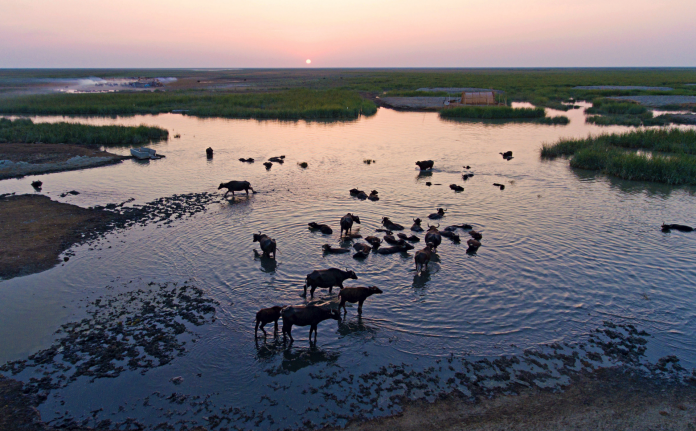[ad_1]
CHABAISH, Iraq – In the southern marshlands of Iraq, Firas Fadl steers his boat through tunnels of towering reeds, past floating villages and half-submerged water buffaloes in a unique region that seems a world apart from the rest of the arid Middle East.
The marshes, a lush remnant of the cradle of civilization, were reborn after the 2003 fall of Saddam Hussein when residents dismantled dams he had built a decade earlier to drain the area in order root out Shiite rebels. But now the largest wetlands in the Middle East are imperiled again, by government mismanagement and new upstream projects.
Fadl, at 26, is too young to remember the death and rebirth of the marshes, but he has seen their steady decline in recent years as he has struggled to make a living by fishing the brackish waters. Upstream electrical dams and irrigation projects have reduced the flow of freshwater, allowing saltwater from the Persian Gulf to seep in.
“The situation is good, it’s just the water is bad,” he said. “Ever since 2012, the water hasn’t been fresh.”
Farming and sewage runoff have depleted fishing stocks, forcing some fishermen to resort to using car…
[ad_2]
Read-Full-Article








